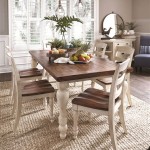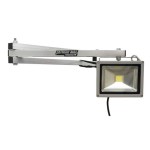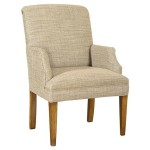Farm Wood Tables: A Guide to Essential Aspects
Farm wood tables, with their rustic charm and timeless appeal, have become a popular choice for homes and businesses alike. Crafted from repurposed barn wood or reclaimed wood from old structures, these tables offer a unique blend of history and modern functionality. While selecting a farm wood table may seem like a simple task, there are several essential aspects to consider to ensure you make an informed decision.
Sustainability and Provenance
In the pursuit of sustainability, farm wood tables offer an eco-friendly alternative to newly harvested lumber. Repurposing old wood reduces waste and promotes responsible environmental practices. Additionally, it's crucial to inquire about the provenance of the wood used to ensure ethical sourcing and minimize the impact on endangered forests.
Wood Species and Grain Patterns
The wood species used for farm wood tables greatly influences their appearance and durability. Oak, pine, maple, and walnut are common choices, each offering distinct grain patterns and color variations. Oak, known for its strength and durability, boasts a prominent grain pattern that adds character to the table. Pine, a softer wood, displays a more understated grain and is susceptible to dents and scratches. Maple, a hard and dense wood, is known for its resistance to wear and tear, making it suitable for high-traffic areas.
Leg Style and Functionality
Farm wood tables come in various leg styles, including trestle, pedestal, and mission legs. Trestle legs, with their A-frame design, provide sturdy support and add a rustic touch to the table. Pedestal legs, with their central column, are a more elegant option and offer unobstructed legroom. Mission legs, characterized by their simplicity and clean lines, are a versatile choice that complements both traditional and contemporary interiors.
Size and Shape
The size and shape of the farm wood table should be carefully considered to match the available space and intended use. Rectangular tables remain a popular choice, offering ample seating capacity and versatility. Oval tables, with their curved edges, soften the lines of the room and create a more inviting atmosphere. Round tables, best suited for smaller spaces, foster intimate gatherings.
Finish and Protection
The finish applied to a farm wood table plays a crucial role in its appearance and longevity. Polyurethane finishes, commonly used, offer excellent protection against spills and scratches. Wax finishes, while less durable, emphasize the natural grain patterns of the wood. Lacquer finishes, providing a glossy sheen, are best suited for more formal settings.
Imperfections and Distressing
Farm wood tables inherently feature imperfections and distressing, such as knots, cracks, and saw marks. These imperfections add to the table's authenticity and rustic charm. However, it's essential to note that excessive imperfections may compromise the table's structural integrity. If durability is a priority, opt for a table with minimal imperfections.
Conclusion
Selecting the ideal farm wood table requires a thoughtful consideration of essential aspects such as sustainability, wood species, leg style, size and shape, finish, and imperfections. By understanding these elements, you can make an informed decision that aligns with your personal preferences and home décor. Embrace the rustic charm and timeless appeal of these tables, and enjoy a unique piece that will enhance your dining or living space for years to come.

Reclaimed Wood Farmhouse Rustic Dining Tables Arcadia Salvage

Large Farmhouse Table Long Farm Dining Room Hong Kong

Solid Hardwood Farm Table James

Rustic Farm Table 12 Foot Reclaimed Wood House Primitive

Extra Large Farmhouse Table Long Farm Custom Wood Dining Room

Large Farmhouse Table Rustic Farm Dining Hong Kong

Farm Wood Dining Table Rsvp Party Als Tables

Plank Farm Table Breadboard Ends Dutchcrafters Dining Tables

Rolling Farm Table Antique Farmhouse

8 X 40 Reclaimed Elm Wood Farm Table With Leg Option








